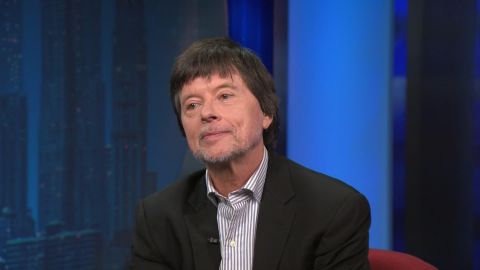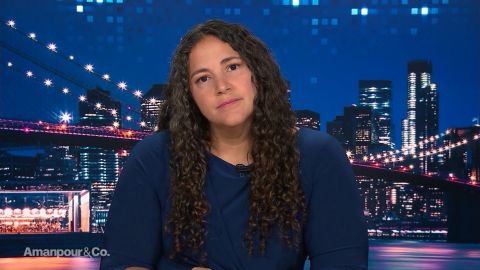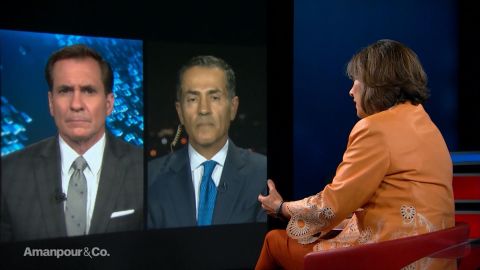Read Transcript EXPAND
CHRISTIANE AMANPOUR: What makes them feel better? And Is it just life on campus or is it the whole sort of political noise and social media noise that’s part of our culture now?
LAURIE SANTOS, HOST, “THE HAPPINESS LAB”: Well, I think it’s all kinds of things. I think one thing to know about what is happening with college student mental health is that the stats are really getting worse over time. Actually, I make these graphs for students where I show them the statistics of things like anxiety and loneliness and so on, and they’re depressing because all the stats are just skyrocketing. One of the scariest ones is that levels of depression have doubled in just the last nine years. So, in less than a decade, we have twice the number of students on campus who are in really serious psychological distress, which is really worrying. But this question of why that is, is a bit of a puzzle. I’m sure, you know, political events in the world aren’t helping, you know, the job market is not helping, but it seems to be something specific to do with their behavior. It seems like the way they’re behaving has changed. You know, they’re interacting less with other students. They have less friendships. They go on dates less. Like — so, it seems to be part of their behavior, as well.
AMANPOUR: Did you come up with this idea for your course because of those feelings and that sort of cultural shift that you had identified or what lead you to come up with this course in the first place that then became so popular?
SANTOS: Yes. I taught at Yale for the last 15 years. And so, I’ve seen these kinds of transitions over time. But for most of the time, I was watching those transitions as a kind of a slightly distanced professor. I was watching it, you know, from the front of a classroom, right, not really knowing what was going on. But in just the last three years, I became a head of college at Yale, which means I live on campus with students, like I eat with them in their dining hall, I hang out them in the coffee shop in the residential college. And that was when I really saw things up close and personal. I was kind of in the trenches with this mental health crisis. And I saw just students who were, you know, so depressed it was hard for them to get up in morning. I saw cases of students who were so anxious about their summer internships that they could barely function. And I thought, this is — first of all, this is what — not what I expected of college student life. You know, I remember college back when I was there in the ’90s as being relatively happy. And so, it was kind of striking. And the class came out of a goal that I had, which is that we need to do something about this as educators. We’re kind of like — we’re not in the position to really be teaching students if they’re in the midst of this mental health crisis. I think as professors we sometimes think we can teach students, you know, Chaucer and economics and things. But if the stats are right and 40 percent of them are too depressed to function and other two-thirds are so anxious that they can — you know, that they’re having panic attacks, you know, we really needed to do something about it.
About This Episode EXPAND
Vali Nasr and John Kirby sit down with Christiane Amanpour to discuss attacks on two critical Saudi oil fields. Laurie Santos, psychologist and host of podcast “The Happiness Lab,” joins the program to explain how students can combat the stress of their daily lives. Filmmaker Ken Burns speaks to Walter Isaacson about his new PBS documentary series “Country Music.”
LEARN MORE


